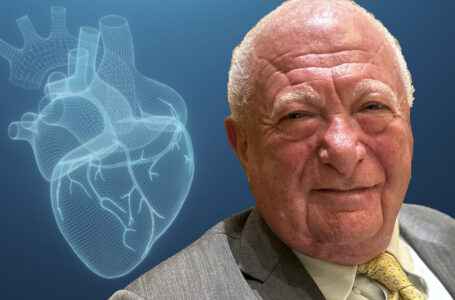Dr. Alex Wodak, Australian general practitioner
Scientists and tobacco harm reduction experts are urging health authorities to reconsider their stance on nicotine, calling for a more nuanced understanding of the substance’s effects and its potential therapeutic uses.
Tobacco harm reduction (THR) advocates are calling for more research into nicotine’s therapeutic potential, emphasizing that nicotine itself is not the primary cause of smoking-related diseases.
“Nicotine is a highly complex substance with a wide range of effects on the brain,” said Dr. Paul Newhouse of Vanderbilt University Medical Center. “The effects, whether long-term or short-term, are highly state- and condition-dependent. We need to acknowledge that a simplistic ‘yes or no,’ ‘black or white,’ ‘good or bad’ characterization won’t help us.”
Nicotine influences brain receptors responsible for mood, cognition and other neural functions, according to Dr. Newhouse. “It alters neural circuitry, and its effects are highly dependent on factors like age and even sex. Many people may never need or want nicotine, but for some, it could be beneficial,” he said at the Global Forum on Nicotine.
“To paraphrase Michael Russell, people smoke for the nicotine, but they die from the hostility to harm reduction,” said Dr. Alex Wodak, an Australian general practitioner, during the forum.

THR is a public health strategy aimed at reducing the risks of tobacco use. Smoke-free nicotine alternatives—such as heated tobacco products (HTPs), vapes, and oral nicotine pouches—are key to this strategy. These products deliver nicotine without the harmful effects of burning tobacco.
Dr. Wodak stressed the importance of helping smokers switch to less harmful alternatives. “We know about eight million people die from smoking-related diseases each year—about the population of Switzerland. Reducing that number as fast as possible should be everyone’s top priority,” he said.
Dr. Garrett McGovern, a harm reduction specialist, echoed these sentiments, saying nicotine alone rarely leads to health problems. “In all my years as a doctor, I have never seen nicotine, absent of tobacco, causing illness,” McGovern said, reflecting on his 25 years of experience in harm reduction.
Dr. Andrew Manson, a nicotine researcher, highlighted that the focus on demonizing smoking has overshadowed nicotine’s potential benefits. “Nicotine can help with stress, weight, mood management, and focus,” he said.
During the Global Forum on Nicotine, a diverse panel of experts, moderated by Clive Bates, director of Counterfactual Consulting and former director of Action on Smoking and Health (ASH) in UK, explored the complexities of nicotine use and its therapeutic potential. The panel included neuroscientist Dr. Newhouse, harm reduction specialist Dr. McGovern, Australian general practitioner Dr. Carolyn Beaumont, and THR advocate Mark Oates.
Dr. Beaumont shared her observations from working with Australian smokers, many of whom switched to vaping as a less harmful alternative. “I’ve seen significant improvements in their health and quality of life after switching,” she said. “Nicotine use will likely continue.”
Mark Oates, speaking from a consumer and advocacy perspective, emphasized that no country has successfully eliminated nicotine consumption. “I found no evidence of any society that started using nicotine and then just stopped,” Oates said. “We’ve only seen countries like Sweden transition to safer alternatives, like snus.”



















